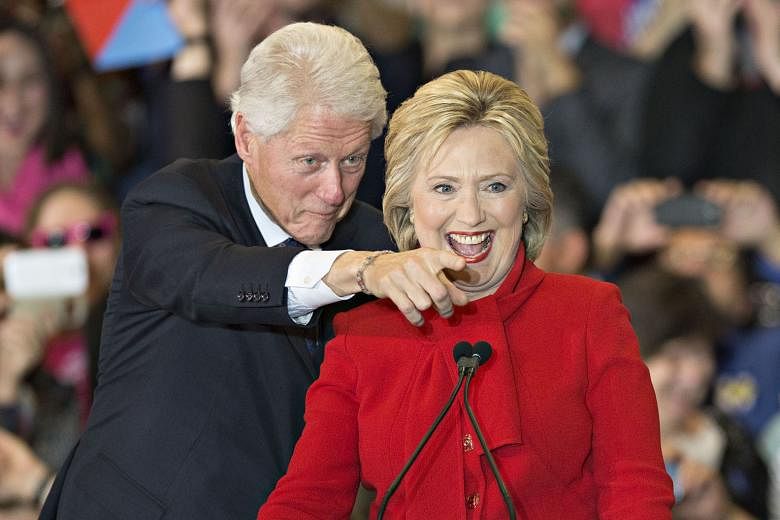The destiny of the presidential nominations for both parties remained in the balance after the Iowa caucus - as voters handed Senator Ted Cruz a narrow victory in the Republican race and gave former secretary of state Hillary Clinton the narrowest of wins over Senator Bernie Sanders on the Democratic side.
While observers had hoped that the Iowa caucus would start to winnow down the field, it provided little guidance as to how the rest of the primary elections might go.
Despite a strong turnout by anti-establishment voters that propelled the likes of Mr Cruz, Mr Sanders and billionaire Donald Trump, the mainstream picks also emerged intact.
For Republicans, questions over Mr Trump's viability were left without conclusive answers. The brash businessman underperformed; the polls consistently had him in the lead but a second-place finish - while a reality check - does not provide enough ammunition to those who want to write him off.
And Mr Trump himself was quick to cast the result as a minor victory.

"So on June 16, when we started this journey, there were 17 candidates. I was told by everybody, do not go to Iowa. You couldn't finish in the top 10," he told supporters in Des Moines who had booed when the results were announced.
"And we finished second and I want to tell you something. I'm just honoured, I'm really honoured."
-
What's next in presidential race
-
After Iowa, the 2016 race for the White House moves to New Hampshire, which holds its primary on Feb 9.
Primaries and caucuses will be held in the remaining US states until June.
A key date is March 1, or "Super Tuesday", when both Democratic and Republican parties will hold nomination contests in no fewer than 12 states.
Both parties will name their presidential nominee in July.
Campaigning continues until Nov 8, when Americans go to the polls to pick the successor to President Barack Obama.
Lee Seok Hwai
If anything, the final tally - 28 per cent to Mr Cruz, 24 per cent to Mr Trump and 23 per cent to Florida Senator Marco Rubio - would probably do the most for Mr Rubio as he consolidated his position as the leading establishment candidate.
For months, Mr Rubio had been polling at around 15 per cent and the surge in support could see him start to gain momentum for next week's race in New Hampshire, where he has said he intends to finish in second place at least.
The result was also a clear setback for the cluster of candidates all vying with Mr Rubio to be the establishment pick - governors Chris Christie and John Kasich, as well as former Florida governor Jeb Bush.
For Mr Cruz, the win underlined the support of Christian conservatives and also re-emphasised the importance of a good grassroots organisation in Iowa.
Based on Monday night's outcome, the top three are the most likely nominees, though it is unclear which of the three might prevail. The already slim chances of the eight other remaining candidates were largely unchanged.
Said Iowa political strategist Joe Shannahan of public affairs firm LS2group: "Nothing is really set in stone yet. New Hampshire has a way of absolutely rejecting Iowa Republican caucus votes."
Only one Republican candidate - former Arkansas governor Mike Huckabee - bowed out after a poor showing. He was joined by former governor Martin O'Malley on the Democratic side, who got less than 1 per cent of available delegates.
After being locked in a virtual tie for a good part of the counting, Mrs Clinton eventually edged out Mr Sanders. The Clinton campaign claimed victory, though both candidates ended up with roughly the same number of delegates.
The result was a big boost for Mr Sanders, who had been counted out months ago, while also saving face for the Democratic front runner, who finished third in Iowa in 2008 despite leading in the polls.
Mr Sanders gave a triumphant speech, saying Iowans sent a "profound message" to Washington.
"Given the enormous crises facing our country, it is just too late for establishment politics and establishment economics," he said.
Mrs Clinton similarly celebrated the night as a victory, though admitting it was something of a relief. "As I stand here tonight, breathing a big sigh of relief, thank you, Iowa."

